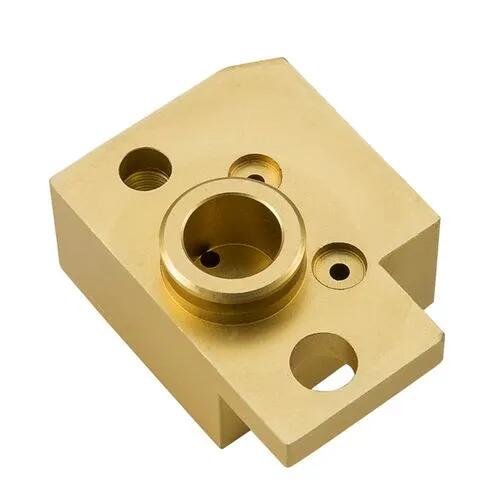In today's fast-paced manufacturing industry, companies constantly seek cutting-edge technologies that can help them improve production processes while ensuring the highest quality standards. One such technology that has revolutionized the manufacturing sector is CNC milling. With its ability to produce intricate and precise parts, CNC milling has become an essential component of many industrial processes.
CNC milling parts refer to the components produced through the computer numerical control (CNC) milling process. This process involves the use of computer-guided machines to remove material from a workpiece to create a desired shape or form. CNC milling parts are widely used in various industries such as aerospace, automotive, electronics, and medical, where precision and accuracy are of utmost importance.

The CNC milling process begins with a digital design or 3D model of the desired part. This design is then converted into a set of instructions using computer-aided design (CAD) software. These instructions, known as G-code, are then fed to the CNC milling machine, which controls the movement of the cutting tools and the workpiece.
One of the key advantages of CNC milling parts is their ability to achieve high levels of precision. The computer-controlled nature of the milling process ensures that each cut is executed with exact measurements, leading to consistent and accurate parts. This precision allows for tight tolerances and intricate designs that cannot be easily achieved through traditional machining methods.
Furthermore, CNC milling parts offer excellent repeatability. Once a part is programmed, the same design can be replicated multiple times with consistent results. This repeatability is essential for industries that require large quantities of identical components, as it helps to streamline production processes and reduce costs.
Another significant advantage of CNC milling parts is their versatility. CNC milling machines can work with a wide range of materials, including metals, plastics, and composites. This versatility enables manufacturers to produce parts with varying hardness, strength, and durability, depending on the specific requirements of their products.
The use of CNC milling also allows for increased production efficiency. The automation of the milling process eliminates the need for manual intervention, reducing the chances of errors and improving overall productivity. CNC milling machines can operate continuously, enabling 24/7 production capabilities, which is particularly beneficial for industries with high volume demands.
When it comes to CNC milling parts, quality control is crucial. To ensure the highest quality standards, manufacturers employ rigorous inspection processes, including dimensional checks, surface finish analysis, and material verification. This stringent quality control ensures that each component meets the required specifications and adheres to industry standards.

In conclusion, CNC milling parts have revolutionized the manufacturing industry with their precision, repeatability, versatility, and production efficiency. The ability to produce intricate designs with tight tolerances has made CNC milling an integral part of various industries. As technology continues to advance, CNC milling machines will only become more sophisticated, offering even greater capabilities in the production of high-quality components.
Post time: Aug-10-2023
